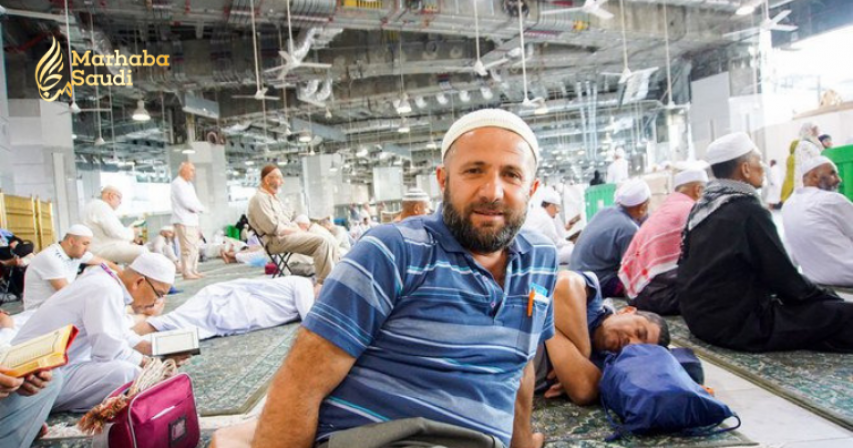Economic hardship reduces Turkish Hajj applications

An estimated 80,000 Turks are entitled to perform Hajj following a protocol signed between Ankara and Riyadh last year.
The first group of about 200 Turkish pilgrims left Istanbul on July 5 with Holy Qur’an recitations and prayers made at the airport.
But despite the number of places available, the economic turbulence in Turkey has made pilgrimage more challenging for Muslims from poorer backgrounds.
The Turkish lira lost about 30 per cent of its value against the dollar last year due to economic and geopolitical turmoil in the country.
Many people interviewed by Arab News said they had to make sacrifices to perform their Hajj duty, sometimes by selling cattle in the village, or through taking on debts.
“I am so excited to be able to go to Makkah and Madinah. I have waited for this opportunity for 10 years,” said Nurcan Kaya, a housewife from the city of Rize.
However, Kaya said she was hampered by the economic crisis and struggled to save money for the pilgrimage.
“We have had to borrow some money because we earn the minimum wage. But I will finally realize my dream. I will pray for all Muslims,” she said.
Muharrem Guldemir, of the Association of Hajj & Umrah Travel Agencies (HURSAD), said economic difficulties have been influential in Turks not performing Hajj.
“For the last two years, many people have abandoned their plans to become pilgrims. With the Turkish lira losing value against the US dollar, spending has dropped,” he said. According to HURSAD, about 12,000 would-be pilgrims had to ditch plans this year due to financial hardship.
“The Turkish Directorate of Religious Affairs even extended the delay of the second instalment of payment by a month to prevent Hajj cancellations,” Guldemir said.
Travel agencies offer various packages for pilgrims depending on their economic means.
Some Turks have been waiting years for the opportunity to perform Hajj. This year, over 2 million candidates applied.
Some 139 travel agencies from Turkey, along with about 1,000 personnel from the Turkish Directorate of Religious Affairs, will take care of the logistics and security of the pilgrims.
They arrived in Saudi Arabia between July 4 and Aug. 5, and will return to Turkey between Aug. 17 and Sept. 3.
Abdullah Tırabzon, an expert from Istanbul University’s Faculty of Theology, said although economic factors have reduced the number of Turks being able to perform Hajj, the additional costs for those who have already been pilgrims also discourages them.
“But at the end of the day, Muslims in Turkey mostly prefer going to Hajj and Umrah rather than having a holiday elsewhere,” he said.
/ Source: arabnews.com





Comments